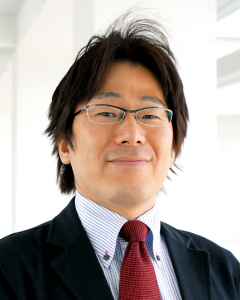- Home
- Education
- Faculty
- Faculty of Cultural Policy and Management
- FUNATO Shuichi
Faculty

FUNATO Shuichi
Professor
- Department of Regional Cultural Policy and Management
Population Decline, Depopulation, Marginal Village
| Degrees | M.A. (Japanese History), Tokyo University (1997) B.A. (Product Design), Sophia University (1995) |
|---|---|
| Selected Professional Experiences | Researcher Fellow of Sustainability Research and Education Organization, Hosei University (2009/11-2011/3) Researcher Fellow of Science Interpreter Training Program, Tokyo University (2006/4-2009/10) Research Fellow (PD), Japan Society for the Promotion of Science (2000/4-2004/3) |
| Research Fields | Regional Sociology, Rural Sociology, Environmental Sociology |
| Major Publications |
|
| Academic Organizations | The Japan Sociological Society The Japanese Association for Rural Studies |
Message
In recent years, in agricultural and mountain villages where the population is declining and the population is aging, villages where more than half of the inhabitants are 65 years old or older are called "marginal villages", and studies have pointed out the possibility of their disappearance. In such studies, it is believed that these villages disappear as the population declines. On the other hand, in such villages, there is a reality that "outside children" - children who have moved out of there - return to their parents' homes and support their parents' lives.
If family relationships beyond these villages are maintained, it is unlikely that the villages will disappear so easily even if the population declines and the population ages. I am specializing in "sociology". Sociology considers society from the "human to human relationship". Humans live in "relationships". It is important to think about rural villages from family relationships, not from the population and aging rate.
If family relationships beyond these villages are maintained, it is unlikely that the villages will disappear so easily even if the population declines and the population ages. I am specializing in "sociology". Sociology considers society from the "human to human relationship". Humans live in "relationships". It is important to think about rural villages from family relationships, not from the population and aging rate.
